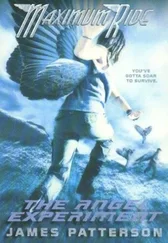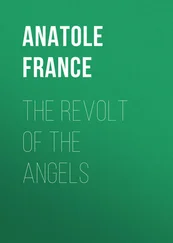Yukio Mishima - The Decay Of The Angel
Здесь есть возможность читать онлайн «Yukio Mishima - The Decay Of The Angel» весь текст электронной книги совершенно бесплатно (целиком полную версию без сокращений). В некоторых случаях можно слушать аудио, скачать через торрент в формате fb2 и присутствует краткое содержание. Год выпуска: 2010, Издательство: CCV Digital, Жанр: Старинная литература, на английском языке. Описание произведения, (предисловие) а так же отзывы посетителей доступны на портале библиотеки ЛибКат.
- Название:The Decay Of The Angel
- Автор:
- Издательство:CCV Digital
- Жанр:
- Год:2010
- ISBN:нет данных
- Рейтинг книги:5 / 5. Голосов: 1
-
Избранное:Добавить в избранное
- Отзывы:
-
Ваша оценка:
- 100
- 1
- 2
- 3
- 4
- 5
The Decay Of The Angel: краткое содержание, описание и аннотация
Предлагаем к чтению аннотацию, описание, краткое содержание или предисловие (зависит от того, что написал сам автор книги «The Decay Of The Angel»). Если вы не нашли необходимую информацию о книге — напишите в комментариях, мы постараемся отыскать её.
The Decay Of The Angel — читать онлайн бесплатно полную книгу (весь текст) целиком
Ниже представлен текст книги, разбитый по страницам. Система сохранения места последней прочитанной страницы, позволяет с удобством читать онлайн бесплатно книгу «The Decay Of The Angel», без необходимости каждый раз заново искать на чём Вы остановились. Поставьте закладку, и сможете в любой момент перейти на страницу, на которой закончили чтение.
Интервал:
Закладка:
Perhaps the eighty-year-old and the twenty-year-old were even now engaged in close combat over life and death.
Night in the Meiji Gardens, for the first time in twenty years. The car had turned left from the Gondawara entrance and was on the circular drive.
“Keep going, keep going.” Each time Honda gave the order he added a cough, like a bothersome accessory.
Egg-colored shirts appeared and disappeared among the night trees. For the first time in a very long while, Honda felt that very special throb in his chest. Old desire still lay piled under the trees like last year’s leaves.
“Go on, go on.”
The car turned right behind the art gallery, where the groves were thickest. There were two or three couples. The lighting was as inadequate as ever. Suddenly there was a glaring cluster of lights to the left. In the middle of the park the entrance to the expressway gaped with a multitude of lights, like a deserted amusement park.
To the right would be the grove on the left side of the art gallery. The night trees cut off the dome, and branches poured out over the sidewalk, a tangle of firs, plantains, pines. Even from the moving car he could hear the insects in the clump of agaves. As if it had been yesterday, he remembered the ferocity of the mosquitoes in the thickets and the sound of slapping against naked skin.
He dismissed the car at the parking lot by the art gallery. The driver glanced at him from under a narrow forehead. It was the sort of glance that can sometimes work collapse. You may go, Honda said again, more strongly. Pushing his stick out on the sidewalk ahead of him, he climbed from the car.
The parking lot was closed at night. A sign said that access was forbidden. A barricade blocked off the entrance. There was no light in the attendant’s shelter, and no sign of life.
Looking after the car, Honda walked down the sidewalk past the agaves. They flung out harsh leaves, a pale green in the darkness, quiet, like a clump of malice. There were few passers-by, only a man and woman on the sidewalk opposite.
Having come as far as the façade of the art gallery, Honda stopped and looked at the great empty scheme in which he found himself. The dome and the two wings rose powerfully into the moonless night. The rectangular pond and the white gravel of the terrace, long streaks of light from the lamps cutting off the dim white of the gravel like the line of the tide. To the left loomed the round wall of the Olympic Stadium, its now-dark floodlights high against the sky. Far below, lamps, like a mist, touched the outermost branches of the trees.
In the symmetrical plaza, which contained no shadow of desire, Honda felt as if he were at the center of the Womb Mandala.
The Womb Mandala, one of the two elemental worlds, is paired with the Diamond Mandala. Its symbol is the lotus, and its Buddhas manifest the virtue of charity.
The womb has also the meaning of inclusiveness. Just as the womb of the beggar woman held the embryo of the Lord of Light, so the muddied heart of the ordinary man holds the wisdom and mercy of all Buddhas.
The perfect symmetry of the shining mandala holds at its center the Court of the Eight-Petaled Lotus, abode of the Lord of Great Light. Twelve courts stretch out in the four directions, and the abodes of the several Buddhas are fixed with delicate and detailed symmetry.
If the dome of the art gallery, high in the moonless night, was taken for the central court, then the avenue where Honda stood, separated from it by the pond, was perhaps the abode of the Peacock Lord, to the west of the Court of Emptiness.
With the Buddhas disposed geometrically on the golden mandala transferred to the dark groves of the symmetrical plaza, the expanse of gravel and the emptiness of the sidewalk were suddenly filled, merciful faces were everywhere, dizzying in the full light of day. The more than two hundred holy faces, and more than two hundred of the Diamond Mandala as well, were shining in the groves, and the ground was ablaze with light.
The vision faded as he walked off. The night was filled with the singing of insects, cicada voices stitched the shadows like needles.
The familiar path was still there through the groves, to the right of the art gallery. He remembered with longing that the smell of the grass and of the night trees had been an indispensable part of desire.
He felt the return of a sharp sense of pleasure, as if he were crossing a tideland, at his feet the workings of fish and shellfish and starfish and crustaceans and seahorses, as at night on a coral reef, the water lapping warm against the soles of his feet, in danger of being cut at each step by the pointed rocks. Pleasure dashed ahead, the body was unable to follow. Signs, indications, were everywhere. As his eyes grew accustomed to the dark he saw white shirts scattered through the groves, like the aftermath of a slaughter.
There was a previous caller in the shadows where Honda hid himself. Honda could tell from the dark shirt if from nothing else that it was a veteran peeper. The man was so short, coming only to Honda’s shoulders, that Honda at first took him for a boy. When he made out the grizzled head, the moist breathing so near at hand seemed heavy and stupid.
Presently the man’s eyes left their object and were trained on Honda’s profile. Honda looked studiously away, but he had felt that the short gray hair bristling from the temples was somehow related to a disconcerting memory. He struggled to bring it out. The usual cough rose to his throat, though he fought to keep it back.
A certain confidence came into the man’s breathing. Raising himself to his full height, he whispered in Honda’s ear.
“So we meet again. You still come, do you? You haven’t forgotten?”
Honda turned and looked into the rodent eyes. A memory came back from twenty-two years before. It was the man who had stopped him in front of the Ginza P.X.
And he remembered with fear how coldly he had treated the man, asserting mistaken identity.
“You needn’t worry. Here is here and there is there. Let’s let bygones be bygones.” This way of forestalling Honda’s thoughts added to the uneasiness. “But you’ll have to stop that coughing.” He turned to look busily off beyond the tree trunks.
Breathing more easily as the man moved some distance away, Honda looked into the grasses beyond the tree. The throbbing had departed, however. It had been replaced by uneasiness and, again, anger and sadness. Self-forgetfulness withdrew as he pursued it. Though the spot was well suited for viewing the man and woman on the grass, there was a false quality about them, as if they knew they were being watched and were acting parts. There was none of the joy in seeing, there was neither the sweet pressure from the recesses of scrutiny nor drunkenness of clarity itself.
Though they were only a yard or two away, the light was too dim for him to make out details or the expressions on the faces. There seemed to be no screen between him and them, and he could approach no nearer. He hoped that if he went on looking the old throb would return. One hand against the trunk of the tree, one hand on his stick, he looked down at the couple.
Although the little man showed no disposition to interfere with his sport, Honda went on remembering things he should not have remembered. Since his own stick was uncurved, he could not hope to imitate the virtuosity of the old man who used his stick to lift skirts. The man had been old then, and no doubt he was dead by now. No doubt rather large numbers of the old men in the “audience” had died in the course of these twenty years. And not a few among the young “performers” too would have married and gone away, or died in traffic accidents or from juvenile cancer or high blood pressure or heart and kidney ailments. Because movements and transfers are far brisker among the performers than in the audience, some of them would be in apartment clusters in bedroom towns an hour or so by private railway from Tokyo, ignoring wives and children and abandoning themselves to the joys of television. And the day was at hand when some of them would join the audience.
Читать дальшеИнтервал:
Закладка:
Похожие книги на «The Decay Of The Angel»
Представляем Вашему вниманию похожие книги на «The Decay Of The Angel» списком для выбора. Мы отобрали схожую по названию и смыслу литературу в надежде предоставить читателям больше вариантов отыскать новые, интересные, ещё непрочитанные произведения.
Обсуждение, отзывы о книге «The Decay Of The Angel» и просто собственные мнения читателей. Оставьте ваши комментарии, напишите, что Вы думаете о произведении, его смысле или главных героях. Укажите что конкретно понравилось, а что нет, и почему Вы так считаете.











